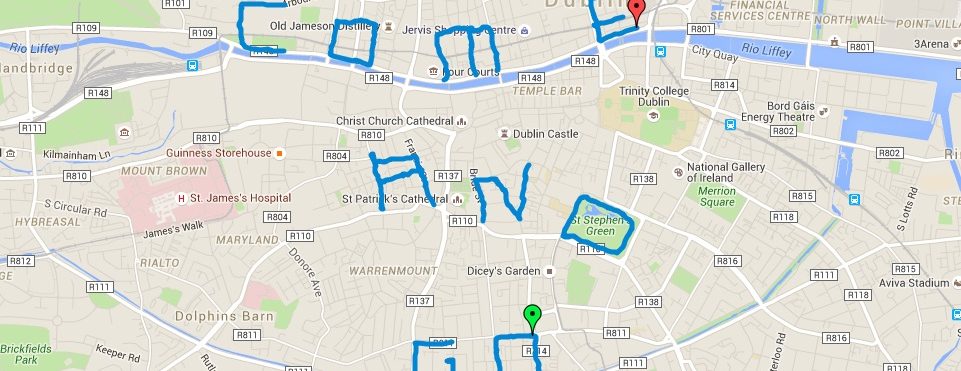Serres
Interessante texto-entrevista com o filósofo frances Michel Serres, onde ele aposta no ciberespaço como sendo uma máquina mundial que pode ampliar o conhecimento. Bem diferente da perspectiva anacrônica e superada de um Dominique Wolton na última Intercom. Vários colegas diziam ser culpa do pensamento frances. Para me contrapor a essa generalização, citava alguns como Michel Maffesoli, Pierre Lévy, Bruno Latour e Michel Serres. Bom, a resposta de Serres me veio ontem.
Ainda no Canadá postei sobre o livro “Les Messages à Distance” onde dizia: “Michel Serres, em ‘Les Messages à distance’ (Editions Fides, Montreal, 1995) que estou lendo agora nesse trem (sim, deixo a conexão de lado e leio, vejo a paisagem, ouço música…), começa o livro mostrando as mudanças na dimensão humana do trabalho e os regimes históricos que ele associa primeiramente a Hercules, a força, o artesão, depois a Prometeu, o fogo, a máquina industrial, e agora a Hermes, a comunicação, a mensagem. Estamos agora, segundo Serres, no regime dos “Angelos”, os mensageiros. Na passagem abaixo vemos bem o trabalho em meio a essa “mobilidade total”. Ele afirma: ‘Considérez, le matin, lorsque vous partez au travail, la foule qui s’écoule par les rues: combien peu de Prométhées, encore moins d’Hercules et d’Atlas, pour tant et tant d’Archanges, partant en voyage, porteurs de messages? Nous vivons désormais dans une immense messagerie, où nous travaillons, pour une majorité, comme des messagers: partons moins de masses, allumons moins de feux, mais transportons des messages, qui, parfois, commendent aux moteurs. Messagers, messages et messageries, voilà, en tout, le programme du travail. Aux plans de l’architecte, aux dessins industriels succèdent réseaux et puces.” (p. 12).'”
Ontem tuitei alguns trechos do “Knowledge’s Redemption” que reproduzo aqui onde o filófoso aponta para algumas dimensões importantes da cibercultura: a necessidade de mudança no sistema escolar, dado ao surgimento de novas formas de produzir, consumir e trasmitir o conhecimento; a conexão (e aí incluindo a colaboração, a participação) como fator essencial para as atuais mudanças culturais; as tensões de fronteira entre lugares e identidades; e a expansão das possibilidades de ampliação do conhecimento sobre o mundo com a circulação de informação (e conhecimento) pelas redes planetárias.
Trechos abaixo:
“What is unprecedented here is that concentration of knowledge no longer obtains. Up to now, any form of education consisted, for every one of us, in the bridging of not one, but several stretches of distance, between one’s place of birth, or point of departure, and that particular place where the elements of knowledge happened to be localised: the local libraries, universities, labs, natural science museums, etc. That was already the case with the great library in Alexandria or Plato’s academy; and after that you had universities, schools, etc. One was always separated by geographical distance from the place of knowledge. But one was separated by social distance also: if you were not born to the right class, or were stuck with a linguistic barrier because your parents were not speaking the proper language; or there was a financial barrier. Even a ‘mindgap’ may be postulated, as when one would not dare to come near these places of knowledge. And yesterday’s education system was a race of attrition on the bumpy road to the sources of knowledge. So what is new about the world we live in, is that the people do not have any longer to move in order to obtain knowledge: thanks to the communication networks knowledge comes to them. And despite lingering fears to the contrary, the opportunity for certain people or certain classes to monopolise these assets has radically decreased. Up to now, knowledge used to be concentrated and accumulated according to the rules of capitalism, even if this has never been analysed in such terms. In building the ‘Tres Grande Bibliotheque'(2), France today enacts a return to a past world in the era of the Internet. Here we have a building that fences knowledge of precisely at the time when the networks enables one to tap into whatever document wherever it may be located on Earth…”
“I do not want to convey the impression that the Net is going to abolish every and all distances.”
“But it will bring the possibility of knowledge to all… it will reach everybody, everywhere, and this is a truly great promise”
“We will have to radically change the whole education system. Every time humanity switched of carrier of knowledge, schools changed”
“Fact is that the circulation of information is a principal parameter that changes everything.”

